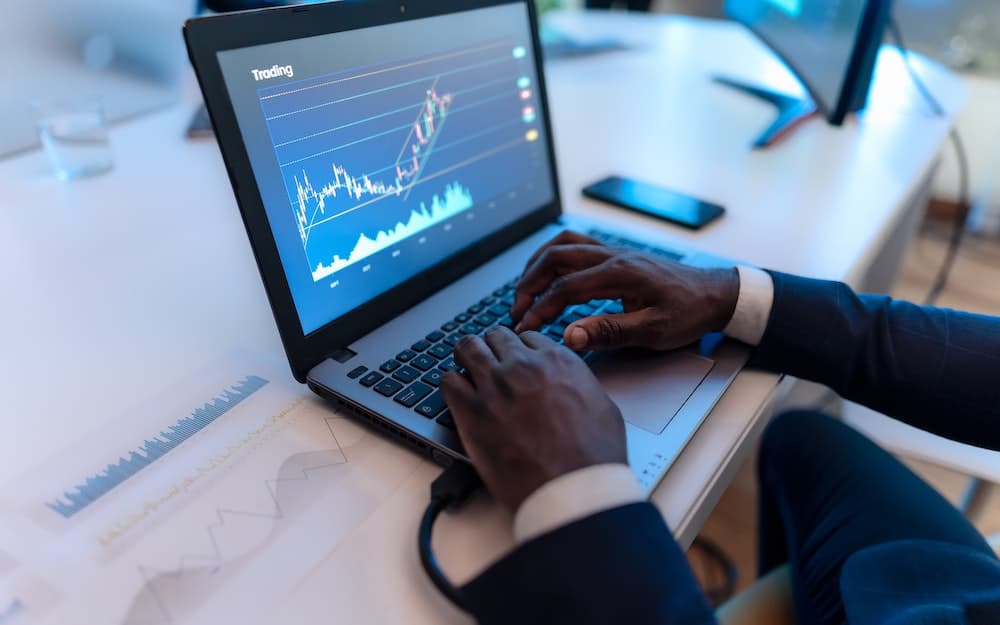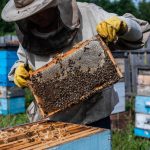Our food system has developed from a simple farm-to-table model into a complex network involving multiple stages and a plethora of participants. Ensuring the traceability of food throughout this extensive supply chain has become a challenging task for industry players. That is where blockchain technology, often associated with cryptocurrencies, can play a significant role. Blockchain systems, combined with data analytics and Internet of Things (IoT), can revolutionise food traceability, offering transparency and boosting consumer confidence in the quality of the products they consume.
Blockchain and Food Traceability: A Perfect Blend
The principles of blockchain technology lend themselves perfectly to tracking and tracing food products. At the heart of blockchain is a shared digital ledger, where every transaction is recorded and validated by all participants. This decentralised system makes the data tamper-proof and easily accessible to all stakeholders, providing a single ‘source of truth’.
Cela peut vous intéresser : How to Integrate a Chatbot into Your UK Customer Service Model?
In the context of the food supply chain, each step in a product’s journey from field to fork can be logged in a blockchain. This could include information on the origins of the ingredients, processing and packaging details, transportation data, and even storage temperatures. This level of detail can significantly enhance food traceability, addressing some of the key challenges faced by the industry.
Meeting the Challenges of Food Traceability with Blockchain
One of the primary challenges in ensuring food traceability is the lack of transparency in the supply chain. With blockchain’s inherent transparency, every stakeholder in the chain, from farmers to retailers and consumers, has access to the same information. This can help identify bottlenecks, inefficiencies, and potential areas of fraud, ultimately improving the overall quality of the food.
A découvrir également : How to Foster Employee Innovation in the UK Corporate Sector?
Another challenge is the speed at which information needs to be accessed in the current supply chain. In the event of a food safety scare, product recalls need to be implemented swiftly to prevent harm to consumers. Traditional systems may not allow for such rapid response. However, with blockchain-based food traceability systems, critical data can be accessed in real time, allowing for quick action.
The Role of IoT and Data Analytics in Blockchain-based Food Traceability
While blockchain forms the backbone of this new-age food traceability system, IoT and data analytics are the support systems that make it practical and efficient. IoT devices such as sensors and RFID tags can capture crucial data at every stage of the supply chain. This data can include soil quality, moisture levels, temperature, and more.
The collected data is then analysed and stored on the blockchain, providing stakeholders with a comprehensive view of the product’s history. Furthermore, advanced analytics can identify patterns and trends, enabling predictive capabilities and proactive measures to ensure food quality.
Blockchain in Action: Case Studies from the UK Food Industry
The benefits of blockchain for food traceability are not just theoretical. Several UK-based companies are already putting this technology to good use. For example, the agriculture cooperative ‘The Organic Dairy Farmers of Britain’ is using blockchain to track and trace organic milk from farm to supermarket. Consumers can scan a QR code on the milk carton to view the entire journey of the product.
Similarly, ‘Provenance’, a UK startup, is using blockchain to provide transparency in the seafood industry. Fishermen log their catch on the blockchain, offering consumers traceability and assurance of the sustainability and ethics of the product.
Looking Ahead: The Future of Blockchain in the UK Food Industry
It’s evident that blockchain technology has vast potential in enhancing food traceability in the UK. While there are some hurdles to overcome, such as technology adoption and standardisation of data collection, the benefits far outweigh these challenges.
The future will likely see an increased integration of blockchain with other emerging technologies like AI and machine learning, pushing the boundaries of food traceability. Companies that embrace this technology will be at the forefront of a more efficient, transparent, and consumer-friendly food industry. The promise of blockchain-informed food choices is an exciting prospect for consumers, offering them a new level of engagement and trust in the products they consume.
The Intersection of Blockchain and Artificial Intelligence in Food Traceability
Blockchain, IoT, and data analytics blend harmoniously to form a robust food traceability system. However, the addition of Artificial Intelligence (AI) and machine learning into this amalgamation amplifies its potential to a whole new level. AI, with its capacity for pattern recognition and predictive analysis, can significantly enhance the capabilities of a blockchain-based traceability system.
The integration of AI in the food supply chain can help automate the process of data collection and analysis. Sensors and RFID tags can pick up data on variables such as temperature, humidity, and soil quality, which can then be analysed in real time. AI’s ability to process enormous amounts of data quickly and accurately can identify potential issues before they become problems, allowing for proactive measures to be taken in the supply chain.
In addition to this, machine learning models can predict future trends and behaviours based on historical data. For instance, it could forecast potential food safety risks based on previous incidents, enabling preventative actions.
Moreover, AI can also play a pivotal role in maintaining the integrity of the blockchain. By detecting any unusual patterns or discrepancies in the data, AI can help prevent fraudulent activities, thus reinforcing the transparency and trust in the supply chain.
The combination of blockchain, AI, and IoT signifies a paradigm shift in food traceability, creating a symbiotic system that not only ensures food safety but also drastically improves the efficiency of the supply chain.
Concluding Thoughts: Embracing the Blockchain Revolution in the UK Food Industry
The use of blockchain technology promises a revolutionary change in the UK’s food industry, particularly in enhancing food traceability. By offering unparalleled transparency, speed, and security, blockchain has the potential to address several challenges in the industry, from ensuring food safety to eliminating fraud.
The integration of IoT and data analytics with blockchain provides a comprehensive, real-time view of the supply chain, making it possible to track a product’s journey from farm to fork. The advent of AI and machine learning further amplifies this potential, allowing for predictive analytics and automated data collection.
However, for this potential to be fully realised, a few hurdles need to be crossed. These include the standardisation of data collection across different stages of the supply chain, the adoption of blockchain and associated technologies, and the training of stakeholders to use these new systems effectively.
Despite these challenges, the benefits that blockchain, AI, and IoT offer are too significant to be ignored. They signify a promising future for the food industry, where transparency, traceability, and trust form the pillars of the supply chain. As more UK companies embrace these technologies, consumers can look forward to a new level of engagement with the food they consume, boosting their confidence in the quality and safety of the products.
















